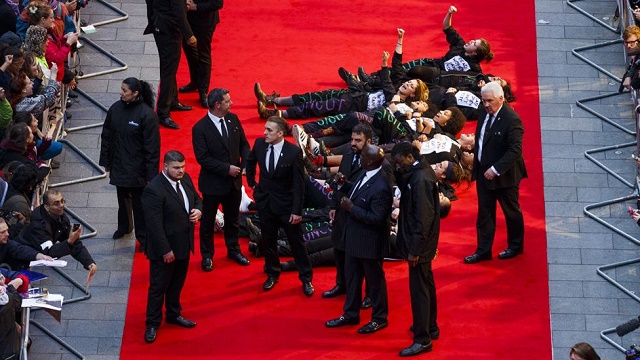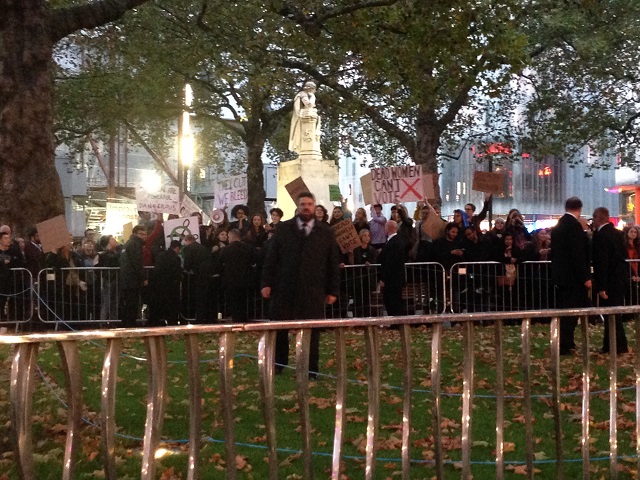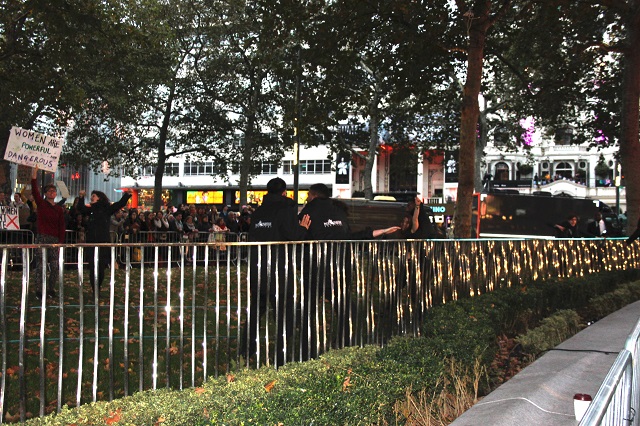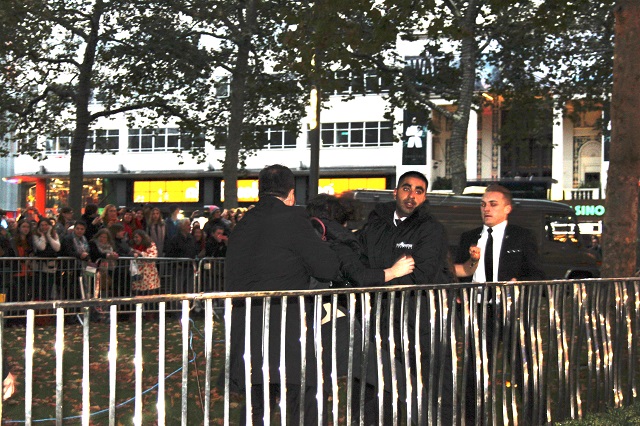“Dead Women Can’t Vote”: Why We Stormed the Red Carpet at the Suffragette Premiere Comment
Editor's Desk, New in Ceasefire - Posted on Thursday, October 8, 2015 17:00 - 1 Comment

(Source: BBC News)
The publicity drive for the film Suffragette (2015), released this week, has not only featured the usual Hollywood self-congratulatory fanfare, but also the sort of publicity stunt that now seems de rigueur for films with an overtly political subject matter.
Ahead of its premiere in London yesterday, the film’s all-white cast appeared in t-shirts emblazoned with a rather poorly thought-out catchphrase: ‘I’d rather be a rebel than a slave.’ Ominously enough, the design seemed to mimic that of the ‘This is what a feminist looks like’ t-shirts of last year, which were a huge hit with the Good and Famous, from Benedict Cumberbatch to Nick Clegg, until it was revealed they had been made in a sweatshop.

(Photo: Guen Murroni)
This choice of T-shirt slogan by the Sufragette crew was astonishing. For a start, it is extremely crude and offensive to the memory of enslaved people and their descendants, painting them as passively accepting of their fate. Moreover, it portrays slavery and rebellion not only as mere choices, but as mutually exclusive ones, too. In doing so it erases the fact that many enslaved people did just that – rebel.
Alas, this episode is the latest in white feminism’s long record of consistently foregrounding and elevating the role of white women and their struggles over and above those of their black and brown sisters. Moreover, it epitomises white feminism’s tendency to to actually forget, distort and erase historical fact in the process.
Since our collective, Sisters Uncut, is a militant, feminist direct action group, what better place to interrupt another whitewashed version of women’s history than at the premiere of the film, alongside actors telling their one half of the story?
Of course, when we were planning this protest, we recognised that films like Sufragette are important, and that women’s history needs to be told. But we were also keen to remind the ‘humanist-not-feminist’ celebrities that the sisters of colour were also there with the Suffragettes, and also fought for women’s rights – not just to vote, but to live in safety.
Sisters Uncut was formed to campaign against cuts to domestic violence services – services that can be a lifeline to women fleeing violent relationships. With the government’s austerity agenda starting to bite, funding for all domestic violence services has been slashed, though specialist services for LGBT, black and minority ethnic women have been hit hardest.
Without access to such vital support, women are left at risk from violent partners, and with two women murdered by a partner or former partner every week in the UK, the government’s action amounts, in essence and in effect, to allowing these women to die.

(Photo: Guen Murroni)
Adopting the very tactics of the Suffragettes carries a special significance for us. The Suffragettes used direct action – blowing up post-boxes, smashing shop windows, disrupting public events – to create a politically toxic environment in which the issue of women’s right to vote, and women’s liberation more generally, could no longer be ignored.
We intend to use those same tactics because we recognise the urgency of the fight for domestic violence services. After all, as we reminded those on the red carpet yesterday, dead women can’t vote.
1 Comment
Anisa Mustafa




I don’t understand this story – it’s a movie about women’s rights so why did they have a problem with these demonstrators? They could have supported them, it’s not that disruptive. Am I being really thick here? I don’t get why these protestors had to be removed.